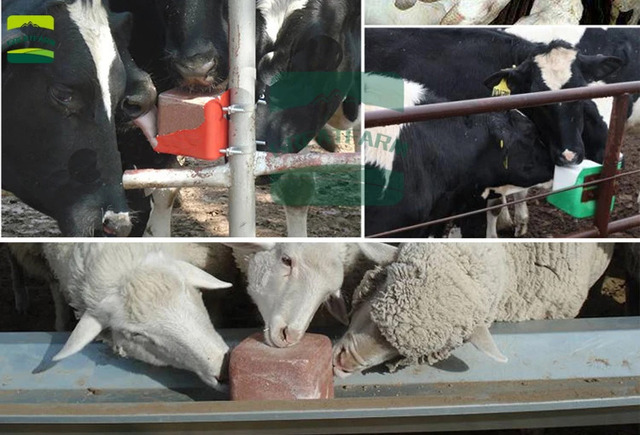Cows are fascinating creatures, and one of their curious habits is licking bricks, often salt or mineral blocks provided on farms. While it might seem odd at first, this behavior is deeply rooted in their nutritional needs and natural instincts. In this article, we’ll explore why cows engage in this behavior, its importance, and how it benefits their overall health.

Cows licking bricks is not random; it’s an instinctive action that fulfills a vital need. This behavior can be broken down into the following key aspects:
Nutritional Instinct: Cows have an innate ability to seek out nutrients their bodies lack. Licking bricks, typically salt or mineral blocks, provides them with essential minerals such as sodium, calcium, and magnesium.
Exploratory Behavior: Like many animals, cows explore their environment with their tongues. This behavior, combined with their need for minerals, drives them to lick surfaces, including bricks.
Environmental Influence: In farm settings, cows may not naturally access minerals found in soil or water. Providing them with mineral blocks compensates for this deficit.
Minerals play a crucial role in maintaining the health and productivity of cows. Without adequate mineral intake, cows may face various health issues.
Essential Minerals:
Cows need a balanced diet that includes macronutrients (e.g., protein, fat) and micronutrients such as:
Sodium: Vital for nerve function and maintaining hydration.
Calcium and Phosphorus: Necessary for bone strength and milk production.
Magnesium: Helps prevent conditions like grass tetany, a metabolic disorder.
Salt Licks:
Salt blocks are one of the simplest ways to supplement sodium and chloride, essential for cows’ electrolyte balance. These are commonly available in:
Plain salt blocks.
Mineral-enriched blocks containing other trace elements.
Trace Minerals:
Blocks with added zinc, copper, and selenium address deficiencies that can lead to reduced immunity, fertility issues, and lower milk yields.
The behavior of licking mineral blocks stems from biological and psychological needs.
Addressing Deficiencies: When cows lack certain minerals, they experience physiological signals prompting them to seek out sources of those nutrients.
Stimulating the Palate: Mineral blocks are often flavored or textured in a way that encourages cows to lick them consistently.
Stress Reduction: In some cases, licking behavior can also serve as a soothing activity for cows in stressful situations, similar to how humans might fidget.
Providing cows with mineral blocks offers numerous advantages, not just for their health but also for farm operations:
Improved Productivity: Adequate mineral intake enhances milk production, reproduction rates, and weight gain in beef cattle.
Healthier Livestock: Proper nutrition boosts immunity, reducing the risk of diseases and infections.
Ease of Use: Mineral blocks are low-maintenance, as cows self-regulate their intake based on their needs.
Cost-Effectiveness: Preventing nutritional deficiencies avoids costly treatments and losses caused by health problems.
Farmers play a critical role in ensuring cows have access to the nutrients they need. Here’s how they can optimize feeding practices:
Choose the Right Block: Different types of mineral blocks cater to various needs. For instance, dairy cows may benefit from high-calcium blocks, while beef cattle might require phosphorus-enriched options.
Monitor Consumption: Overconsumption or underutilization of blocks can indicate underlying issues such as boredom, stress, or improper placement of the blocks.
Ensure Availability: Place mineral blocks in accessible areas, such as near feeding or watering spots.
Supplementation: Combine mineral blocks with a balanced feed to address all dietary requirements comprehensively.
Licking behavior is not unique to cows; it is a common trait among many livestock animals. Comparing cow behavior to other animals provides insights:
Sheep and Goats: Like cows, they also lick salt and mineral blocks to supplement their diet.
Horses: Often provided with salt blocks, horses exhibit similar behavior to maintain hydration and electrolyte balance.
Deer and Wild Animals: In the wild, animals naturally seek out mineral-rich areas such as salt licks, showing this is a universal need.
Throughout history, farmers have recognized the importance of mineral supplementation for livestock. Salt licks were among the earliest forms of animal nutrition management, often discovered by observing wild animals congregating around natural mineral deposits.
Today, this practice has evolved with modern farming techniques, allowing for tailored nutritional solutions that meet the specific needs of livestock in different environments.
Mineral blocks are a sustainable and efficient way to provide essential nutrients, but their placement and use should consider environmental factors:
Natural Sources: In some regions, soil and water already provide sufficient minerals, reducing the need for supplementation.
Avoiding Overuse: Excess minerals can leach into soil and water, impacting the environment.
Eco-Friendly Options: Many manufacturers now produce blocks with biodegradable packaging and eco-conscious formulations.
Cows lick bricks not because of a peculiar habit but due to a vital need to fulfill their nutritional requirements. This behavior reflects their instinctive ability to seek what their bodies lack. By understanding and supporting this natural behavior, farmers can ensure healthier, happier, and more productive livestock.
From the physiological reasons behind licking to the practical benefits of mineral blocks, this behavior underscores the importance of thoughtful livestock management. So, the next time you see a cow licking a brick, remember—it’s not just quirky; it’s essential for their well-being.
animal tags: Cows
We created this article in conjunction with AI technology, then made sure it was fact-checked and edited by a Animals Top editor.